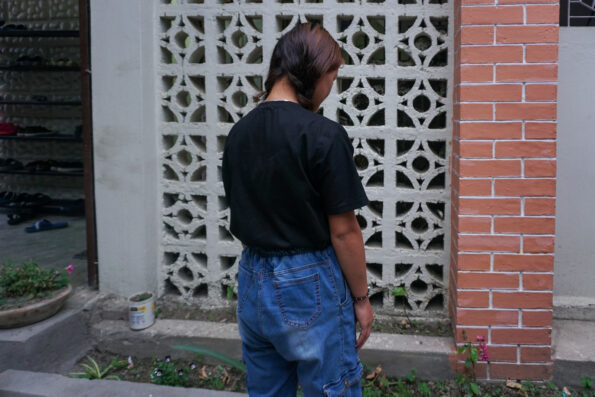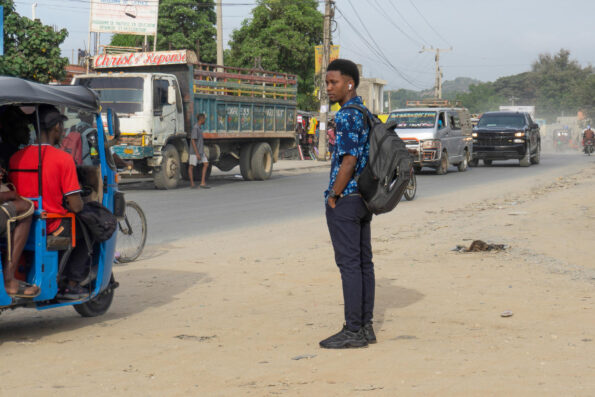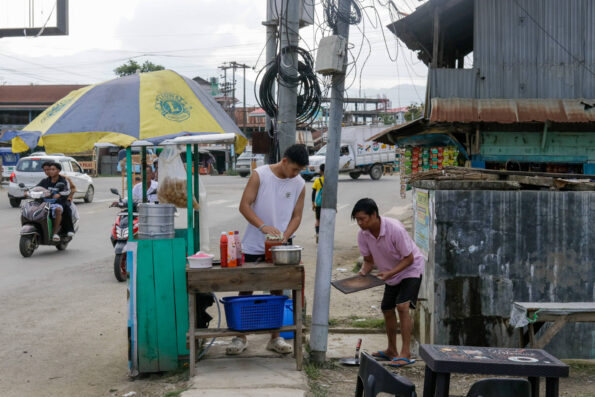
Pascaline Kavuo Mwasi Saambili, GPJ DRC
The rapidly growing number of displaced people in North Kivu province has depleted available aid, forcing many to develop their own business ideas. Kavira Siwako is one of 30 local women who now cut grasses in surrounding forests to help farmers feed their livestock.
BUTEMBO, DEMOCRATIC REPUBLIC OF CONGO — Women selling dried grass, or hay, in the market here might seem normal. But this is a new phenomenon – a consequence of the extreme poverty induced by war.
When Kahongolo Kahindo and her family were forced to leave their home village in Ituri province because of ongoing violence, they tried to make a new life in Butembo, a city in North Kivu province.
But aid for displaced people in the country is limited because of increased demand – North Kivu province hosts as many as 25 percent of the country’s 4.49 million displaced citizens. So Kahindo says she had to get creative to feed her family.
“I’m married with seven kids, and my husband has always been sick,” she says. “After realizing that local people had grown tired of providing us with assistance every step of the way, I sat down and thought about what I could do.”
Her calculation was simple, she says. In Butembo, many are engaged in animal farming. But it can be difficult to get feed for livestock, thanks to bad roads, insecure travel, cost and other factors.
“So, one day, my kids and I got up very early in the morning to head to the forest to cut grass,” she says. “We took it to the city and went door-to-door, asking farmers if they wanted to buy hay for their animals.”
The response was better than she anticipated.
“Farmers were positively awestruck by our move, and more people started placing orders with us,” she says. “When my fellow war-displaced people saw that, they followed in my footsteps and started selling hay.”



DRC is home to the largest population of internally displaced people in Africa. At least 4.49 million people, including 2.7 million children, are currently displaced by ongoing violence throughout the country. According to the United Nations Office for the Coordination of Humanitarian Affairs (OCHA), the rate of displacement increased significantly in 2017, doubling from the previous year.
According to 2017 data, the most recent available, nearly 50 Congolese families are forced to flee their homes every hour. Ongoing violence in Ituri province has pushed more than 1.1 million displaced people into neighboring North Kivu. The new wave of displacement is attributed to increased fighting between armed groups in surrounding areas and military action against those groups, the 2017 OCHA report concluded.
Expecting adequate support from local government and NGOs is akin to “building castles in the air,” Kahindo says.
Now, Kahindo is organizing other displaced women to sell hay in the markets, regulate prices and attract more customers.
A stack of hay, enough to feed small livestock, sells for 200 Congolese francs (12 cents), and a stack for larger animals goes for 500 francs (31 cents), she says.
Farmers rely on this service to feed their animals, says George Mukosa, an agronomist in the area.
“Not too many years ago, a whole lot of rich people in DRC’s North Kivu province could raise many animals, including cattle and goats, on their farms,” Mukosa says. “Things took a turn for the worse for them when armed groups started invading their farms. Conflicts in DRC have caused massive suffering for civilians, pushing them further into poverty.”
Now, the more than 30 women working together to sell hay have also created a rotating savings scheme, known as a likelemba.
“Once a week, we each pay 1,000 francs (62 cents) into the pool,” Kahindo says, adding that members can then request loans from the group on a negotiated repayment plan.
“One of us can get up to 30,000 francs ($19) cash, when it’s her turn,” she says.
This informal collective has transformed its members’ lives.
Kavira Siwako, an elderly woman, says she had no one to turn to after insecurity caused her to leave her home village.
“I’ve been forced to flee, leaving my land and house behind,” she says. “They show no mercy to anyone. The [armed groups] rape women, young and old. So we had no choice but to flee.”
Now, she is starting to make some money.
“Although it doesn’t help cater to all of our needs, our new business is a great help to us,” Siwako says.
At the market stand, women and their children organize and sell hay during the day. For one young girl, helping her mother has been a welcome distraction.
“Why all this suffering? What did we do to deserve this?” asks Josephine Masika, daughter of one of the newly minted entrepreneurs. “We can’t eat unless we and our moms head to the forest and cut hay to sell, to afford to survive.”
Charles Kambasu, village chief of Butembo, says these women are setting a good example of hope and entrepreneurship. Recognizing their innovation, Kambasu instructed tax collectors to exempt them from market fees, he says.
Ndahayo Sylvestre, GPJ, translated the article from Swahili.






